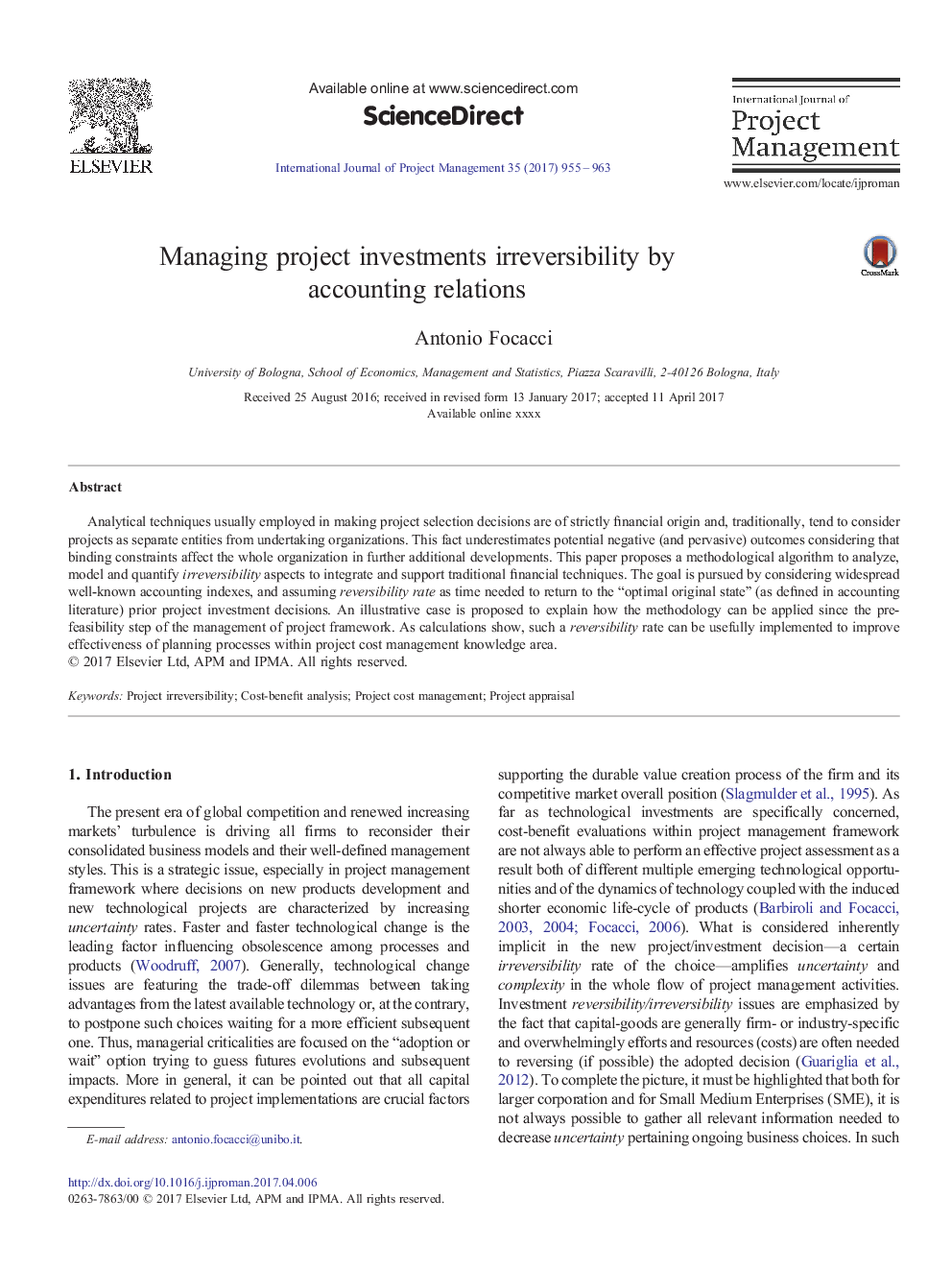| Article ID | Journal | Published Year | Pages | File Type |
|---|---|---|---|---|
| 4922155 | International Journal of Project Management | 2017 | 9 Pages |
Abstract
Analytical techniques usually employed in making project selection decisions are of strictly financial origin and, traditionally, tend to consider projects as separate entities from undertaking organizations. This fact underestimates potential negative (and pervasive) outcomes considering that binding constraints affect the whole organization in further additional developments. This paper proposes a methodological algorithm to analyze, model and quantify irreversibility aspects to integrate and support traditional financial techniques. The goal is pursued by considering widespread well-known accounting indexes, and assuming reversibility rate as time needed to return to the “optimal original state” (as defined in accounting literature) prior project investment decisions. An illustrative case is proposed to explain how the methodology can be applied since the pre-feasibility step of the management of project framework. As calculations show, such a reversibility rate can be usefully implemented to improve effectiveness of planning processes within project cost management knowledge area.
Related Topics
Physical Sciences and Engineering
Engineering
Civil and Structural Engineering
Authors
Antonio Focacci,
